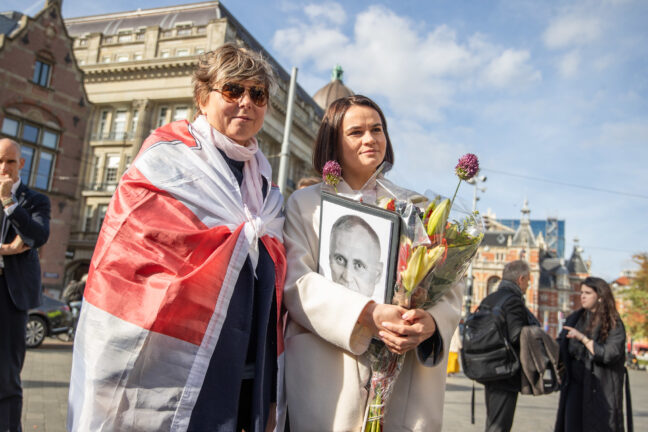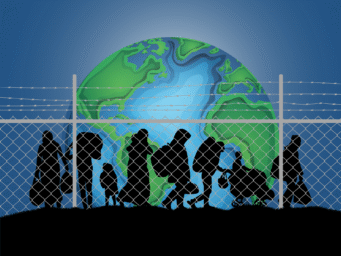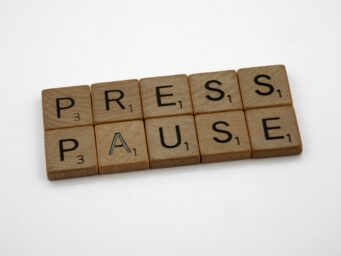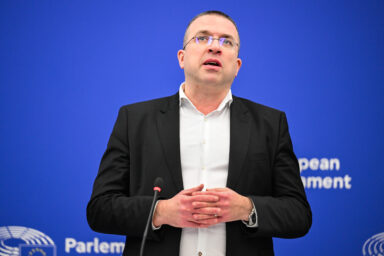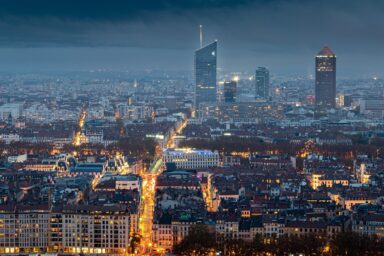On 22 October, Belarusian opposition leader Sviatlana Tsikhanouskaya and her husband Siarhei Tsikhanouski will deliver a key address in the European Parliament, marking five years since the stolen 2020 presidential election in Belarus. Mrs Tsikhanouskaya strongly welcomes the EU’s continued support but stresses that much more must be done to turn solidarity into real change—and to one day see her homeland free from the Lukashenka regime.
As the European Parliament prepares its resolution on Belarus, Tsikhanouskaya shared her thoughts on how important EU support was for the democratic movement.
EU support is crucial now and into the future
How important is this resolution by the European Parliament for the Belarusian democratic movement — symbolically and practically?
This resolution is very important — both as a political signal and a moral gesture. For Belarusians inside the country and in exile, the European Parliament shows that it continues to stand with us and recognises our struggle. It’s not just about words on paper — it’s about showing that the democratic world hasn’t forgotten us, even five years after the stolen election of 2020.
Symbolically, it confirms that Lukashenka’s regime is not legitimate. It reminds the world that our fight for freedom is not over. It’s a sign of respect to the courage of our people, especially to those who are in prison, under torture, or forced into silence.
It reaffirms that the world sees Belarusians as the rightful owners of their future, not the regime. Practically, such a resolution helps keep Belarus on the international agenda and can lead to real action. It urges governments to maintain pressure on the Lukashenka regime – through sanctions and isolation – and to support Belarusian civil society.
You might be interested
But beyond symbolism, we need practical consequences. Every resolution should lead to actions — tighter sanctions, the closure of loopholes, more pressure on the regime, and more help for those who resist it. We also hope this resolution will give new momentum to EU countries to take stronger steps: to support Belarusian media and NGOs in exile, and to engage more actively with democratic institutions we’ve built.
We need Europe to invest in our democracy’s future. That means supporting our people directly — so that Belarus’s exiled communities stay strong, our culture and identity survive this dark period. – Sviatlana Tsikhanouskaya, democracy and opposition leader who won the 2020 election in Belarus
No new day, only new forms of repression
Five years after the stolen 2020 election, what are the most urgent forms of repression the Lukashenka regime continues to use against Belarusian citizens?
The repression in Belarus has only intensified. It’s no longer just about political activists — it touches everyone. Today in Belarus, the authorities can arrest any person for a Facebook comment, for displaying a white-red-white sticker, or even for simply reading independent media. The regime has labeled thousands of people as ‘extremists’ — and that label alone causes them to lose their jobs, face detention, or endure torture.
We have over 1,300 political prisoners officially recognized by human rights organisations. But the real number might be much higher — some estimate that authorities have detained up to 10,000 people for political reasons. Many officials hold them in complete isolation — incommunicado — for months. We don’t even know if some of them are alive.
The regime is using these methods to break people psychologically and physically. Beatings, torture, denial of medical care, solitary confinement — all of this is happening in Europe in the 21st century. The goal is simple: to silence the country completely. But they haven’t succeeded — Belarusians are still resisting in different ways, even quietly. And that’s why the repression continues.
Invisible hope?
Have you seen any signs — however faint — of divergence or tension between Mr Lukashenka and the Kremlin that could shift Belarus’s trajectory?
On the surface, they act as allies. But we know it’s not a real alliance — it’s a relationship built on fear and dependence. After the 2020 protests, Lukashenka lost all support inside Belarus. The only reason he’s still in power is because of Putin’s support — political, military, financial. In return, Lukashenka gave up Belarus’s sovereignty — allowed Russian troops, nuclear weapons, and propaganda to flood our country.
But this dependency creates tension. Inside the regime, there are people who are afraid of becoming part of Russia’s next failed adventure. Some in the security forces or in government circles are already looking for an exit strategy. We’ve seen leaks, defections, and signs of nervousness. They understand that a dictator who isolates himself completely—from both his people and the world—holds their future in his hands.
So yes, the cracks are there — maybe not visible every day, but real. When authoritarian regimes collapse, they collapse fast. We must be ready for that moment.
Under the shadow of the Kremlin
How do you assess the depth of Mr Lukashenka’s alignment with the Kremlin today, especially in light of Russia’s war against Ukraine? Has Belarus’s sovereignty effectively been lost?
Belarus, under Lukashenka, has become a satellite of the Kremlin. There is no independent policy anymore — not in foreign affairs, not in the economy, not in defence. Russian troops train and operate in Belarus. Russia has deployed nuclear weapons in Belarus. The regime uses Belarus as a launchpad for aggression, against the will of its own people.
So yes — in practice, our sovereignty has been severely undermined. But it’s important to separate the regime from the people. The regime gave away our independence. But Belarusians have not. They oppose the war, they risk their lives sabotaging railways and military infrastructure, and they help Ukraine. Many even fight at the front for Ukraine.
Belarus is not Russia. And we don’t want to be. The future of Belarus is a European future. And our sovereignty will be restored only when democracy is restored. Only a democratic Belarus can be a reliable neighbour — not a threat, not a puppet of Moscow.
Manipulation
When political prisoners are released — as in the case of your husband — under conditions of exile or silence, do you see it as a victory, a manipulation, or something else?
When my husband Siarhei was finally freed after five years, it was an immense personal relief and joy – a victory for our family and for everyone who fought for his freedom. But I am very aware that his release, like others, was orchestrated by the regime for its own aims. Lukashenka is using our people as hostages and bargaining chips. He freed a few high-profile prisoners as part of a deal, hoping to get concessions from the West in return.
These releases often come with strings attached – exile, forced silence, a bar on any political activity. So while we celebrate every person who escapes those inhumane jail cells, we know the regime is trying to manipulate public perception. It’s not real justice when an innocent person is “pardoned” for crimes they never committed. True victory will be when all political prisoners are freed unconditionally and Lukashenka can no longer jail anyone for their beliefs. Until then, each release is a bittersweet moment – joyful for the family, but a reminder that over a thousand others remain behind bars and that the regime is cynically trading human lives for political gain.
It’s important to separate the regime from the people. The regime gave away our independence. But Belarusians have not. They oppose the war, they risk their lives… and they help Ukraine.
Words are not enough
What would a meaningful shift in EU support look like beyond resolutions — in practical terms for exiled Belarusians and civil society?
We are grateful for statements of support, but actions speak louder than words. A meaningful shift would involve the EU taking concrete steps to help Belarusians on the ground and in exile. For example, the EU could increase funding for Belarusian civil society groups, independent media, and human rights initiatives working from abroad — those who keep fighting for freedom. Despite being forced out. The EU should make it easier for Belarusians fleeing repression to find refuge in Europe by simplifying visa procedures, offering scholarships and educational programs for students expelled for their activism, and providing job opportunities for dissidents so they can rebuild their lives. I’ve long urged European leaders to help our civic society with resources, because our people are suffering.
The EU can also step up politically – treat the Belarusian democratic forces as the legitimate representatives of Belarus, involve us in regional discussions, and prepare a serious Marshall Plan-style economic package for a future democratic Belarus. In short, beyond resolutions, we need Europe to invest in our democracy’s future. That means supporting our people directly — so that Belarus’s exiled communities stay strong, our culture and identity survive this dark period, and civil society continues helping those in need while keeping pressure on the regime until it changes. Only through such practical solidarity can Europeans turn their resolutions into real change for Belarusians.
Finally, we need a clear European perspective for Belarus. This will give hope. It will show that democracy brings real results. That a future in Europe is not just a dream — it’s a plan.
